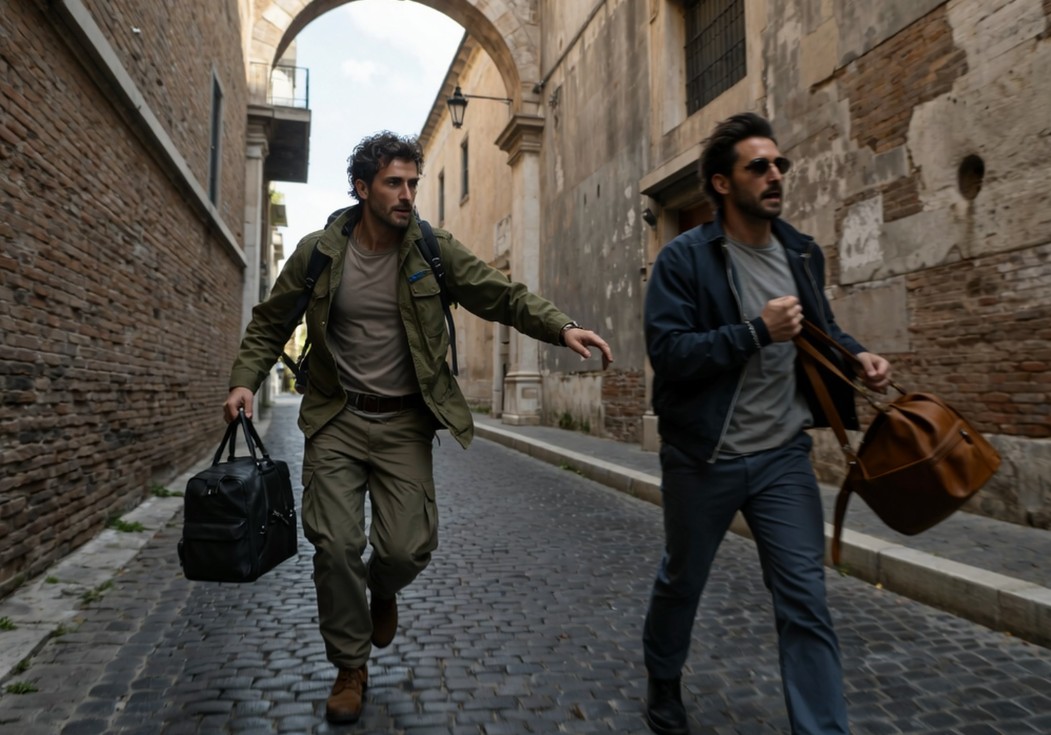read also
News / Tourism & hospitality / Вusiness / Migration / Tourism Netherlands / Netherlands / France / Tourism France / Italy / Tourism Italy / Tourism Germany / Germany / Greece / Tourism Greece / Spain / Tourism Spain 29.10.2025
Europe Calls — and Pickpockets Answer: Where Tourists Face the Greatest Risks in 2025 and How Not to Become a Victim

Europe’s capitals remain a dream for travelers — Rome and Paris, Barcelona and Berlin, Amsterdam and Athens. But alongside record tourist flows come rising pickpocketing, phone snatches, and street robberies. Below is a verified roundup of countries and cities with the most notable risks, plus practical tips for staying safe.
Why Theft Statistics Matter
Pickpocketing is the most common crime against tourists: it’s easy to commit in crowds and often goes unreported. To understand the “risk backdrop,” both traveler-reported indices and official police reports are useful.
The European Pickpocketing Index 2024 (Quotezone) shows that, by mentions of pickpocketing per million visitors, the leaders are Italy (478), France (251), Spain and Germany (111 each), and the Netherlands (100). This is not a “crime count,” but an indicator of how frequently tourists mention the problem.
High-Appeal Cities and Higher-Attention Zones
Rome & Milan, Italy
Italy remains a magnet for tourists — and for pickpockets. Greater Rome recorded 33,455 pickpocketing incidents in 2024 (+68% vs. 2019); street robberies reached 2,014 (+51.3% vs. 2019). Over five years, overall recorded crime in the Rome metro area rose 23.2% (Univ-Censis/Censis, as cited by Italian media). Hotspots include the Trevi Fountain, Colosseum, Pantheon, Termini station, and public transport. In Milan, 69.7 crimes per 1,000 residents is the highest rate among major Italian cities.
How to protect yourself: use anti-theft bags, keep wallet and phone out of back pockets, and avoid distractions from “street shows” and “surveys.”
Paris, France
Europe’s icon — and a capital of classic tourist scams: petition distractions, metro crowding. Paris heavily influences France’s high score in the Quotezone pickpocketing index. Extra vigilance was advised during and after the 2024 Olympics. Risk points: Eiffel Tower, Arc de Triomphe, Notre-Dame, the Louvre, Musée d’Orsay, and the metro lines serving them.
London, United Kingdom
The capital of museums and theatres has seen a spike in phone thefts. In 2024 an estimated 78,000 people in the UK were victims of snatch theft — +153% versus the year to March 2023; London accounts for the lion’s share. Parliamentary and media reports cite tens of thousands of stolen phones in the capital, with police and MPs targeting “moped/e-bike” gangs. Hotspots: the Tube (especially central lines), Westminster and Camden, markets, and busy streets.
Barcelona, Spain
Even amid targeted improvements, theft still accounts for about 6 in 10 crimes in the city; a large share occurs on streets and public transport (Catalan Interior Ministry, 2024). Risk areas: La Rambla, La Boqueria market, the metro, and around the Sagrada Família.
Berlin, Germany
In 2024, Berlin police registered 539,049 offences (~1,500 per day). For tourists, the key risk is pickpockets in crowds near the Brandenburg Gate, Reichstag, East Side Gallery, and on transit.
Amsterdam, Netherlands
Amid canals and museums, the most frequent complaints involve pickpocketing in the Red Light District and around key sights. City authorities are shifting parts of the “night-time economy” out of the centre, with strict conduct rules in the district.
Athens, Greece
The main risk: pickpockets on the metro and at tourist hubs like Monastiraki and around the Acropolis. In October 2025, police detained a group operating at Monastiraki — a reminder that theft is a recurring “classic.”
Marseille, France
Marseille remains a focal point for anti-drug operations; despite a drop in “narco-killings” in 2024, risks remain high and police actions are intensifying. For tourists, the primary threat is pickpocketing around the Old Port and crowded districts.
What Tourists Should Do: A Short Safety Checklist
- Don’t display gadgets or cash. Keep your phone in a front pocket or a zipped cross-body bag.
- On public transport, keep your bag in front of you. Don’t wear a backpack on your back in metros or on escalators.
- Beware of “distraction” tactics. Conversations, “stains on clothing,” “surveys,” and “friendship bracelets” are pretexts to grab your belongings.
- Keep copies of documents and your phone’s IMEI. Report theft immediately — it improves recovery chances and helps police deploy patrols.
- Check local advisories. Police and city websites regularly update risk maps and recommendations.








